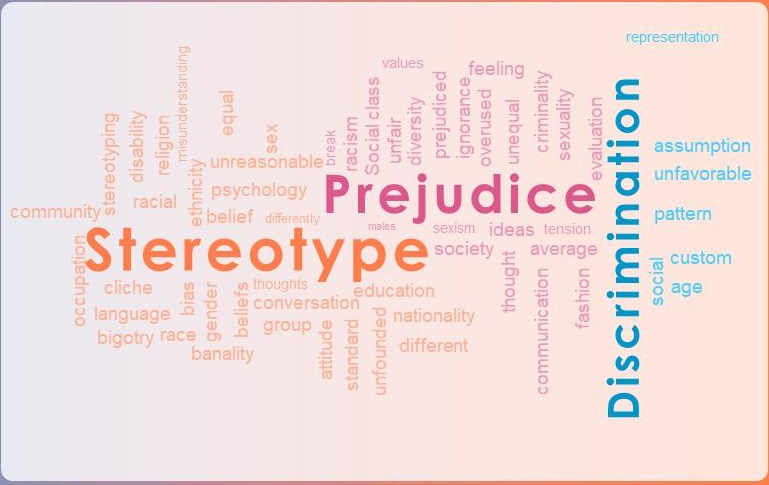Navigating the Gray Area: Exploring Fuzzy Categorization
In the realm of human beings, categorization is the process of understanding things by knowing what other things they are similar to or distinct from. It is the central part of human cognition that helps us to process the information that we get from our sense organs. The term category is used in almost the same way as people use the term concept.
Also it is important to note that the same thing can be categorized into different categories by different people, but we are interested in exploring the fact that even a single person can not categorize all things in a specific category. There are many things which we are not able to fit in a well-defined category after a certain level. This is where the concept of Fuzzy Categorization comes into picture. It is very fascinating to see such a cognitive phenomenon which acknowledges the shades of Gray area that exists between boundaries of different categories.
Traditional concepts about categorization assume that there are well-defined boundaries for every category. But, this concept of fuzzy categorization challenges this approach and forces us to think that categories have blurry boundaries and are even overlapping. It also helps us to understand that although most of us categorize most things in similar categories, there are many things which some will categorize in category A and some in B.
Consider an example of classifying a list of edible plant products into fruits and vegetables. There are many items which we will not be able to put in a single category, such as tomatoes, cucumbers, peas. But there can be some people who will put peas into vegetables without any doubt as they always used it by cooking it alone or with any other vegetable and eating it with roti,etc. On the other hand, there are people who eat peas in raw form also, for them it is in the fuzzy category between fruits and vegetables. So, this example shows us that categories are not only having overlapping boundaries but they are also different for every person.

https://domf5oio6qrcr.cloudfront.net/medialibrary/11499/3b360279-8b43-40f3-9b11-604749128187.jpg
What if we are asked to classify the items in above example as edible or inedible. Most of us will classify them as edible without any doubt. Now, consider any fruit which grows only in a particular region and has certain features which are not pleasant for all people. A typical example is Durian, a tropical fruit known for its distinctive odor. If two people, one from a tropical area having this fruit and another from Europe are asked to categorize this fruit into edible or inedible then will classify it into different categories. This shows us that there is a Categorical Hierarchies and fuzziness present at each level and things which are having clear distinctive features at one level may lie at boundaries at next level. This concept is only limited to this example but applies to every category at any level.
The fuzziness spectrum :
Consider categorizing things based on color, while many things fit perfectly into well known colors such as red, blue, orange, etc. There are many colors which fall in between these boundaries. As the color spectrum is continuous and we can not define infinite categories there will always be things whose color can not be categorized clearly in one of the well known categories.
 |
| © Alhovik/Shutterstock.com |
Linguistic Nuances :
Natural languages are rich with words which represent fuzzy categorization such as tall, old, intelligent, good. Many people will classify the same thing into different categories based on these features. This is also because in nature every parameter that we use as a base to classify things are continuous in nature, hence it is not possible to make well-defined categories.
Real world Applications :
Fuzzy categorization is present in every field. In economics, identifying socioeconomic classes can be challenging as individuals may exhibit attributes of multiple classes simultaneously. Consider purchasing any product, many times it becomes complex to decide between two items. Almost anything that involves a decision taking process mostly encounters this fuzzy categorization.
Conclusion :
Fuzzy categorization shows us that the world around us is not that simple, that we can divide things into discrete categories, but it is very complex. It exposes the gray area and uncertainties around us. It also reflects the fact that categorization is a way adapted by our brains to understand the complex world around us in a simpler way. By acknowledging this inherent fuzziness, we can be more open-minded and adaptable thinkers.

It is great to read this insightful blog on fuzzy categorization, as it sheds light on various real-life situations I frequently encounter. It's now clear to me why certain debates within our hostel often remain unresolved – there are indeed instances where things defy clear-cut categorization. Your blog has made me appreciate the nuances and complexities that can arise when trying to pigeonhole matters into rigid categories. Thanks Aman for your insights on this topic !!
ReplyDeleteThe fact that categories needn't be distinct and absolute, and can have overlaps is justified through this article, and I believe that many arguments could be resolved just by acknowledging this fact and reaching on a common conclusion by being a bit flexible. Excellent topic and exquisite way of expressing your thought about the topic!!
ReplyDeleteThis blog is a thought-provoking exploration of the concept of fuzzy categorization. It's fascinating how it highlights the inherent complexity of categorizing things in our world, especially when it comes to shades of grey and overlapping boundaries between categories. The examples provided, like the classification of Durian fruit, beautifully illustrate how different perspectives can lead to varied categorizations. The blog encourages us to embrace the complexity and uncertainties in our understanding of the world and reminds us that categorization is a tool our brains use to simplify the intricate reality around us.
ReplyDelete